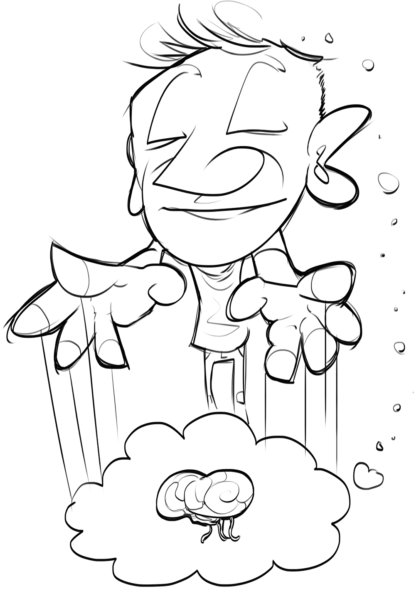Many of us have had the embarrassing public opportunity to witness a voice in the room that at one point sounds out “Oh but have you read so-and-so who says this-and-this”. The proclamation, a challenge perhaps to some argumentative futurist discourse stops time itself, freezes the interrupted, taking the horse off the track and causing the charioteer to stammer. In truth, the poor unsuspecting speaker may not have heard so-and-so say this-or-that. The reason may not only be because they have not fully researched all scholarship within a particular field, but also because it is not possible to read everything nor those everythings that everyone has ever written. It may not even be due to bilateral hippocampal lesions (Scoville & Milner, 1957) either. Our ability to recall all that has been written on a subject could also be impacted by the “number of sleep spindles” as they correlate to “overnight verbal memory retention”, according to Clemens, Fabo and Halasz (2005).
Regardless, despite our best scholarly intentions there will always be one (or more) articles we should have come across in our literature review, if only we had placed the appropriate keywords in the search bar.
So, while we stand on the shoulders of giants, at times we are not quite sure which giants, and we can easily forget that some giants are actually dwarves. That shouldn’t stop us from speaking publically nor should you let your diacophobia, or fear of being interrupted (Hadjiyannis, 2017), stop you. Now rather than propose a lukewarm solution to the problem of being interrupted by a scholarly interjector, that consists of a bullet point list, simply memorize the following whenever you are challenged:
‘No sir, I have not heard of so-and-so, however, this may be due to what Scoville and Milner discuss as the influence of bilateral hippocampal lesions on my own recent memories. It could also be due to overnight verbal memory retention and the number of sleep spindles I had last night preparing for this talk.
Diacophobic references
Scoville, W. B., & Milner, B. (1957). Loss of recent memory after bilateral hippocampal lesions. Journal of Neurology, Neurosurgery & Psychiatry, 20(1), 11-21.
Clemens, Z., Fabo, D., & Halasz, P. (2005). Overnight verbal memory retention correlates with the number of sleep spindles. Neuroscience, 132(2), 529-535.
Unused but compelling
Carrigan, M. H., & Levis, D. J. (1999). The contributions of eye movements to the efficacy of brief exposure treatment for reducing fear of public speaking. Journal of Anxiety Disorders, 13(1), 101-118.
Unofficial and invented
Hadjiyannis, Y. (2017). The paper I never wrote on the subject of diacophobia because the author interrupted my Friday evening playing of Crossy Road and a re-reading of: Boot, W. R., Kramer, A. F., Simons, D. J., Fabiani, M., & Gratton, G. (2008). The effects of video game playing on attention, memory, and executive control. Acta psychologica, 129(3), 387-398.


Leave a Reply